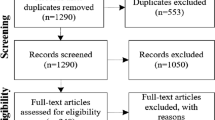Abstract
Supporting the individual user in his working, learning, or information access is one of the main goals of user modeling. Personal or group user models make it possible to represent and use information about preferences, knowledge, abilities, emotional states, and many other characteristics of a user to adapt the user experience and support. Nowadays, the disappearing computer enables the user to access her information from a variety of personal and public displays and devices. To support a new generation of contextualized and personalized information and services, this paper addresses the problem of context management. Context management is a new approach to the design of context-aware systems in ubiquitous computing that combines personalization and contextualization. The presented framework for context management integrates user modeling and context modeling, which can benefit from each other and give rise to more valid models for personalized and contextualized information delivery. The paper will introduce a base framework and tools for designing context-aware applications and decompose the underlying framework into its foundational components. As two illustrative application cases, the paper discusses implementations of an intelligent advertisement board and an audio-augmented museum environment.
Similar content being viewed by others
References
ARTracking: 2005, A.R.T. GmbH – Your Expert for Infrared Optical Tracking Systems. http://www.ar-tracking.de/
P. J. Brown (1996) The Stick-e Document: A framework for creating context-aware applications Palo Alto CA 259–272
P. Brusilovsky (1996) ArticleTitleMethods and techniques of adaptive hypermedia User Modeling and User-Adapted Interaction 6 IssueID2–3 87–129 Occurrence Handle10.1007/BF00143964
Dey, A. K. and Abowd, G. D.: 1999, Towards a better understanding of context and context awareness. Technical Report GIT-GVU-99-22, College of Computing, Georgia Institute of Technology.
A. K. Dey G. D. Abowd D. Salber (2001) ArticleTitleA conceptual framework and a toolkit for supporting the rapid prototyping of context-aware applications Human-Computer Interaction Journal 16 IssueID2–4 97–166 Occurrence Handle10.1207/S15327051HCI16234_02
H. Dieterich U. Malinowski T. Kuehme M. Schneider-Hufschmidt (1993) State of the art in adaptive user interface M. Schneider-Hufschmidt T. Kuehme V. Malinowski (Eds) Adaptive User Interfaces North-Holland Amsterdam, Netherlands 13–48
M. R. Ebling G. D. H. Hunt H. Lei (2001) Issues for context services for pervasive computing. Workshop on Middleware for Mobile Computing Germany Heidelberg
G. Eckel (2001) LISTEN – Augmenting every day environments with interactive sound-scapes Porto Portugal
Ekahau: 2005, Ekahau – The Most Accurate Wi-Fi Positioning. http://www.ekahau.com/
T. Fox (2001) Präsentation neuer interaktiver Lehrmedien in der Sonographie Nürnberg Germany
J. Gossmann M. Specht (2001) Location Models for Augmented Environments Atlanta USA 94–99
T. Gross M. Specht (2001) Awareness in Context-Aware Information Systems. Mensch & Computer – 1. Fachübergreifende Konferenz Bad Honnef Germany, Teubner-Verlag 173–182
Grunst, G., Fox, T., Quast, K. -J. and Redel, D. A.: 1995, Szenische Enablingsysteme – Trainingsumgebungen in der Echokardiographie. In: U. Glowalla, E. Engelmann, A. de Kemp, G. Rosbach, and E. Schoop (eds.): Deutscher Multimedia Kongreß’95, Auffahrt zum Information Highway Highway, Springer-Verlag, pp. 174–178.
K. Henricksen (2003) A Framework for Context-Aware Pervasive Computing Applications University of Queensland Queensland
A. Jameson (1999) User-adaptive systems: An integrative overview Banff Canada
A. Jameson (2001a) ArticleTitleModeling both the context and the user Personal Technologies 5 IssueID1 29–33
A. Jameson (2001) User-adaptive and other smart adaptive systems: Possible synergies Tenerife Spain 13–14
A. Jameson (2003) Adaptive interfaces and agents J. A. Jacko A. Sears (Eds) Human-computer Interaction Handbook Erlbaum Mahwah, NJ 305–330
A. Kobsa J. Koenemann W. Pohl (2001) ArticleTitlePersonalized hypermedia presentation techniques for improving online customer relationships The Knowledge Engineering Review 16 IssueID2 111–155
M. Kravcik A. Kaibel M. Specht L. Terrenghi (2004) ArticleTitleMobile collector for field trips Journal Educational Technology & Society 7 IssueID2 25–33
H. Lei D. M. Sow J. S. Davis G. Banavar M. R. Ebling (2002) ArticleTitleThe design and applications of a context service ACM SIGMOBILE Mobile Computing and Communications Review 6 IssueID4 45–55
LISTEN: 2005, LISTEN – Augmenting everyday environments through interactive soundscapes. http://listen.imk.fraunhofer.de.
R. Oppermann (1994) Adaptive User Support: Ergonomic Design of Manually and Automatically Adaptable Software Lawrence Erlbaum Associates Hilldale, New Jersey
R. Oppermann C. G. Thomas (1996) Supporting learning as an iterative process in a social context Lisboa Portugal 150–156
R. Oppermann M. Specht (2000) A context-sensitive nomadic exhibition guide UK Bristol 127–142
M. J. Pazzani D. Billsus (1997) ArticleTitleLearning and revising user profiles: The identification of interesting web sites Machine Learning 27 313–331 Occurrence Handle10.1023/A:1007369909943
Rich E.: 1989, Stereotypes and User Modeling. In: A. Kobsa, and W. Wahlster, (eds.): User Models in Dialog Systems, Springer-Verlag, pp. 35–51.
W. L. Johnson J. Rickel R. Stiles A. Munro (1998) ArticleTitleIntegrating pedagogical agents into virtual environments Presence 7 IssueID6 523–546
D. Salber A. K. Dey G. D. Abowd (1999) The context toolkit: Aiding the development of context-enabled-applications Pittsburgh PA 434–441
Schilit, B. N.: 1995, System architecture for context-aware mobile computing. Ph.D. Thesis, Columbia University.
B. N. Schilit N. I. Adams R. Want (1994) Context-Aware computing applications Santa Cruz CA 85–90
A. Schmidt (2002) Ubiquitous computing in context Lancaster University UK
P. Unnützer (2001) ArticleTitleLISTEN Kunstmuseum Bonn KUNSTFORUM International 155 469–470
M. Weiser (1991) ArticleTitleThe Computer for the twenty-first-century Scientific American 265 94–104
M. Weiser (1994) ArticleTitleThe world is not a desktop Interactions 1 7–8 Occurrence Handle10.1145/174800.174801
V. Wulf (2000) ArticleTitleExploration environments: supporting users to learn groupware are functions Interacting with Computer 13 IssueID2 265–299 Occurrence Handle10.1016/S0953-5438(00)00046-1
A. Zimmermann A. Lorenz M. Specht (2002) Reasoning from contexts Hannover Germany 114–120
A. Zimmermann A. Lorenz (2003) Listen: Contextualized presentation for audio-augmented environments Karlsruhe Germany 351–357
Author information
Authors and Affiliations
Corresponding author
Rights and permissions
About this article
Cite this article
Zimmermann, A., Specht, M. & Lorenz, A. Personalization and Context Management. User Model User-Adap Inter 15, 275–302 (2005). https://doi.org/10.1007/s11257-005-1092-2
Received:
Accepted:
Issue Date:
DOI: https://doi.org/10.1007/s11257-005-1092-2




